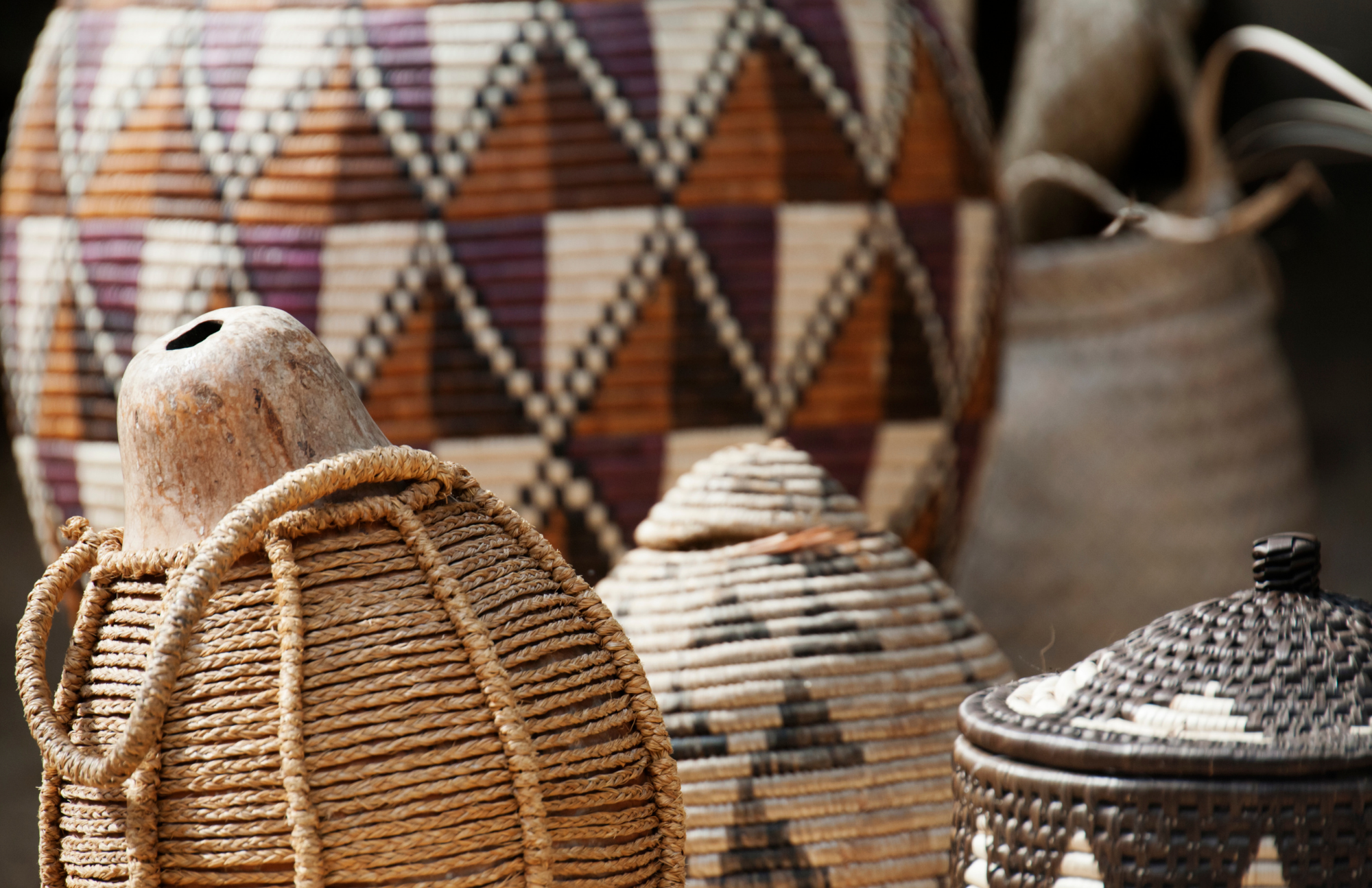South Africa’s flourishing craft market is providing tourists with spectacular and original artefacts to take home from their travels. And in the process, poverty is being alleviated in a truly sustainable manner.
Several cultural initiatives, born out of the Craft Imbizo II at the World Summit on Sustainable Development that took place in Johannesburg in 2002, have taken off.
These initiatives are providing people in far-flung corners of the country with employment – and stimulating the arrival of new and highly marketable creative designs onto the country’s already rich arts and craft scene.
Beautiful Things, an exhibition showcasing crafts from around the country and put together for the World Summit, has now developed a momentum of its own.
After the Summit, the exhibition moved to the Bus Factory, a new crafts exhibition centre in Newtown, Johannesburg, in December 2002. There is now a retail outlet, Shop for Beautiful Things, alongside the exhibition, which sells a range of exotic and varied crafts both from the exhibition and bought specifically for the shop.
“Craft objects made by traditional craftspeople, according to ancient practices, can be found on exhibition, side by side with those made from contemporary materials to suit the expanding local and international markets”, says the department of arts and culture.
“Many of the new products are made by the groups set up by the Poverty Alleviation Fund (established by the department to create job opportunities for poor people). The exhibition is constantly expanding and changing to display and market the products to the local and international buyers who come to see this remarkable showcase of craft.”
The Bus Factory, a partnership initiative between the department, the Gauteng provincial government, the City of Johannesburg and the Johannesburg Development Agency, aims to become a hub for the country’s craft industry – showcasing crafts from all nine provinces and operating as a centre for training and development workshops.
Xhosa arts and crafts take off
Another sustainable craft initiative is taking off in the Eastern Cape. When crafters from the province exhibited their wares at the World Summit Imbizo, they soon realised they had highly desirable products on display and required a sales outlet after the Summit.
With financial help from the department of arts and culture’s Poverty Alleviation Fund, they set up a shop in the Boardwalk Casino complex in Port Elizabeth, a much-frequented tourist attraction, and opened to the public in December 2002.
Initially, nine local crafters supplied the shop, EzamaXhosa (meaning “Belonging to the Xhosa People”). Now, 145 crafters from even the most remote rural areas of the Eastern Cape are supplying their wares to the shop.
Pottery, beadwork, cushions, table linen, leatherwork, wooden carvings, cutlery, walking sticks, bags, cards and traditional clothing are some of the items on sale. The traditional clothing has proved so popular that more shop space is now needed to cater to the demand.
Although most crafters are paid twice a month depending on sales, the very poor crafters are paid cash for their wares. This money comes from the 25% mark-up on shop goods. Crafters are also given lists of which of their products have sold and which have not. So far, ExamaKhosa has paid out R250 000 to Eastern Cape crafters.
Unfortunately, the money from the Poverty Alleviation Fund – which has financed shop fittings and equipment and which pays administration funds and the salaries of eight staff members – will cease in March 2004. The Boardwalk will begin charging rental, and the shop will need to be sustainable.
But, with the success thus far of the Johannesburg and Eastern Cape initiatives, the future looks brighter for scores of previously unemployed people who have developed new skills in the crafts industry, and who now have an outlet for their wares.
SouthAfrica.info reporter

